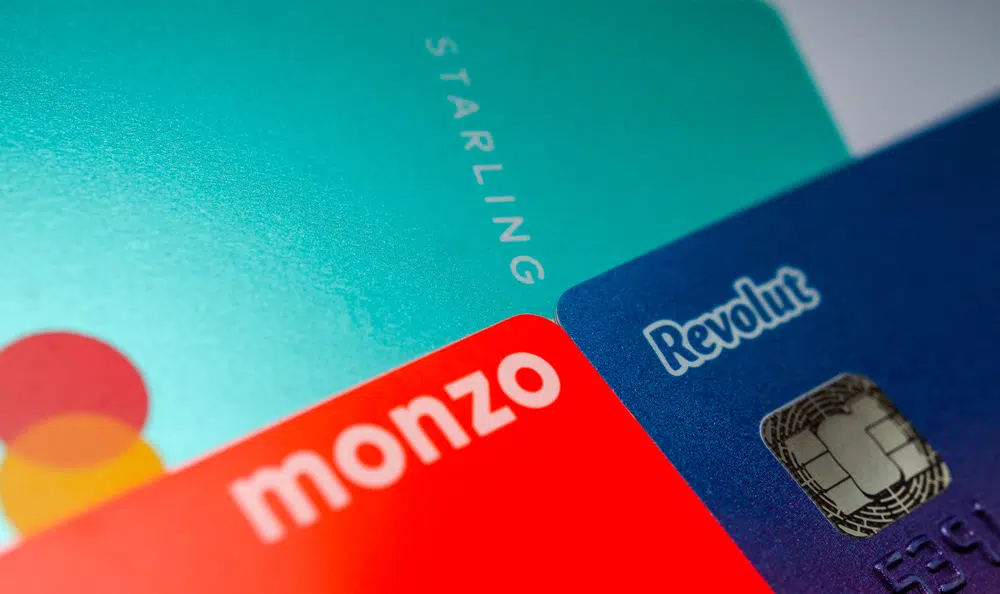
Challenger banks are typically online-only banks that offer high interest rates and low fees. They also tend to have fewer physical branches, which can be a downside for some customers. However, many people find that the advantages of a challenger bank outweigh the disadvantages.
If you’re considering making the switch to a challenger bank, here are a few things to keep in mind. One of the biggest benefits of challenger banks is that they often offer higher interest rates on savings accounts and lower fees on checking accounts.
They also tend to have excellent customer service and innovative technology. So if you’re looking for a new banking experience, a challenger bank might be right for you.
What is a challenger bank?
A challenger bank is a type of financial institution that offers banking services and products in competition with larger, more established banks. Challenger banks are typically newer, smaller organizations that often use technology to offer more convenient or innovative banking experiences. In recent years, the rise of digital-only challenger banks has changed the banking landscape, offering customers more choice and competition.
While challenger banks still make up a small percentage of the overall banking market, they are growing in popularity, particularly among younger consumers who are more likely to use digital channels for their financial needs. As challenger banks continue to gain ground, it will be interesting to see how they further shape the future of banking.
History of the challenger bank
The challenger bank is a relatively new concept in the banking industry. Challenger banks are digital-only banks that aim to provide a more modern and convenient banking experience for consumers. These banks are often started by tech entrepreneurs who are looking to disrupt the traditional banking system.
While the challenger bank concept is still fairly new, there are already a number of these banks up and running in various countries around the world. In the UK, well-known challenger banks include Monzo, Starling Bank, and Revolut. In the US, some of the most popular challenger banks include Chime, Varo Money, and SoFi.
Established challengers:
- Metro Bank
- CYBG
- Co-operative Bank
- TSB
- Virgin Money
- Handelsbanken
- Bank of Ireland
- Aldermore Bank
- Shawbrook
- M&S
- Tesco Bank
- Sainsbury’s Bank
Challenger banks have quickly become popular with consumers who are looking for an alternative to traditional banks. These banks offer many modern conveniences, such as mobile apps and online banking, that make it easier and more convenient to manage one’s finances.
Modern challengers:
- Monzo
- Starling Bank
- Revolut
- N26
- Monese
- Cashplus
- Atom
- Tandem
In addition, challenger banks often have lower fees than traditional banks and offer higher interest rates on savings accounts. As a result, it’s no surprise that challenger banks are quickly gaining market share in the banking industry.
What can challenger banks offer UK businesses?
Challenger banks will have to begin to b more adoptive of business accounts if they aspire to grow to the size of the current big four. This will mean introducing a system that is accessible and useful to businesses around the UK, and eventually worldwide.
There are multiple challenge companies currently offering business banking in the UK. These include Revolut, Starling Bank, and Soldo. Each of them use slightly different pricing structures and come with different useful features for businesses to take advantage of.
We have compiled what each of the three UK-based challenger banks can offer businesses.
Revolut –
- Multi-currency cards – cut travel expenses and avoid foreign exchange mark-ups
- Fast Payments – transfer money to any other Revolut account for free, and save when you make payments to businesses around the world
- Payment approval – any of your team can raise payments that need your approval, while bulk payments allow you to make up to 1,000 payments with a single click
- Partner discounts – Revolut offers exclusive discounts and perks from partners to help get your business up and running
Starling Bank –
- Notifications – the app sends you notifications every time money enters or leaves your account
- Categorised transactions – these give you a valuable insight into where your business is spending most
- Goals – a unique feature that allows you to create financial savings goals. Then set money aside towards them
Soldo –
- Customisable budgets and rules – you can control exactly how company funds are spent, and even set specific rules for different users depending on how much freedom they should have
- Track spending – check balances and receive notifications for transactions, refunds, or payments blocked by your rules
- Soldo Mastercard – once you have an account, you can create as many prepaid cards as you need in GBP, EUR, or USD
- Reporting and analysis – get full visibility over your business, with the ability to generate tailored reports and export the data
How do people feel about challenger banks? Do they trust them?
As the traditional banking system continues to face challenges, many consumers are turning to so-called “challenger banks” for their financial needs. But what exactly are challenger banks, and do consumers trust them? Challenger banks are usually digital-only banks that offer products and services similar to those of traditional banks.
However, they often have lower fees and offer more innovative products and services. In terms of trust, a recent study found that nearly 60% of consumers trust challenger banks, while only 26% said they trusted traditional banks. This suggests that people are willing to give these new players a chance, particularly when it comes to their money. Challenger banks still have a long way to go before they can fully dethrone traditional banks, but it’s clear that they are making inroads with consumers
Are challenger banks performing well?
In the UK, challenger banks are often lauded for their competitive rates and innovative technologies. In recent years, these banks have made significant inroads into the UK banking market, overtaking traditional players in customer satisfaction surveys. However, some industry experts have questioned whether challenger banks are sustainable in the long term.
While these banks have succeeded in attracting new customers, they have struggled to generate profits. In addition, many of these banks are heavily reliant on external funding sources, which could dry up if the economic climate deteriorates. As a result, it remains to be seen whether challenger banks will be able to maintain their momentum in the years ahead.
What next for challenger banks?
In recent years, UK challenger banks have made a big splash in the banking sector. By offering innovative products and services, they have managed to win over many customers who are tired of the big banks. However, with Brexit looming large on the horizon, it is unclear what the future holds for these nimble upstarts.
There is no doubt that Brexit will have a major impact on the UK economy. And with the banking sector being so closely linked to the economy, it is likely that challenger banks will feel the brunt of the impact. The problem is that nobody knows exactly what form Brexit will take. If it is a hard Brexit, then there could be serious implications for the UK banking sector as a whole. However, if it is a soft Brexit, then things might not be so bad for challenger banks.
All in all, it is hard to predict what will happen to UK challenger banks after Brexit. What we do know is that they will face some challenges in the months and years ahead. But if they can adapt and change with the times, then they should be able to weather the storm.
Conclusion
Even if a customer switches to a challenger bank, there is no guarantee that they will not go back to their original bank. The next crucial step for challengers, then, will be to consolidate their existing customers by encouraging loyalty and trust. This can be done in a number of ways, such as offering rewards for continued use of the account or providing transparency about how customer deposits are used.
For close to a decade now, challenger banks have been growing in popularity. They offer features and benefits that are more attuned to customers’ needs, as well asswitch incentives that make it an easy choice for many people. However, despite their growth, challenger banks will always struggle against banks that have been in existence for much longer.
The latter have the advantage of name recognition and customer loyalty, both of which are hard to overcome. In order to continue growing, challenger banks will need to offer unique features and benefits that appeal to a wide range of customers. Only then will they be able to compete with the established players in the industry.
Additionally, it will be important for challenger banks to provide excellent customer service and to resolve any issues that may arise. By taking these steps, challenger banks can turn their active customers into loyal ones who consider their account to be their primary bank account. In doing so, they will be well on their way to becoming true challengers to the big four UK banks.
Read more: Reasons why the business need funding
Lee Jones is a seasoned Business Finance Specialist with over two decades of invaluable experience in the financial sector. With a keen eye for market trends and a passion for helping businesses thrive, Lee has become a trusted advisor to countless organizations seeking to navigate the complexities of finance.


